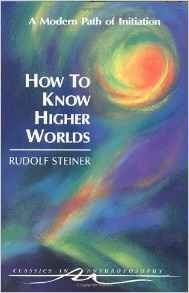Editor's Page
JFK's Lost Suitcase by Frank Thomas Smith
It
was 1960. I worked
as an American Airlines ticket and ramp agent at New York's LaGuardia
Airport. It was a time of DC 3s and 6s, Convairs and later the
Lockheed Electra turboprops - which began to fall out of the sky at
around that time because of torque pressure on the wings.
We
did everything. Nowadays you buy your ticket on the internet or from
a travel agent. Then you were more likely to have bought it from us
at the airport. That means that we didn't only give you a boarding
pass and sling your bag onto a belt, but we also issued your ticket
by hand, which made us tariff experts as well. And fares were
complicated those days – there were “open jaw”
constructions, which meant that you could travel from A to B but
return from C to A (the open jaw being from B to C) and still get the
round-trip discount, by calculating one-half the round trip fares A-B
and C-A. There were also “triangular” fares – A to
B to C to A, for example: New York-Paris-Buenos Aires-New York...
Continue reading
Features
Frida and Diego - a special love by Frida Kahlo and Diego Rivera
“I DON'T GIVE A SHIT
WHAT
THE WORLD THINKS.
I WAS BORN A WHORE, I WAS
BORN A PAINTER,
I WAS BORN SCREWED UP...
BUT I WAS HAPPY ON MY
WAY...
YOU DON'T UNDERSTAND WHAT
I AM...
I AM LOVE, I AM PLEASURE,
I AM ESSENCE, I AM AN IDIOT, I AM AN ALCOHOLIC,
I AM TENACIOUS, I AM...
I SIMPLY
AM...
KEEP YOUR
FUCKING LIFE, YOU'RE A SHIT.”
FRIDA KAHLO TO
DIEGO RIVERA
Continue reading
Frida y Diego - un amor especial por Frida Kahlo y Diego Rivera
 Continuar
Continuar
Science
The Doomsday Clock - Nuclear
Weapons, Climate Change, and the Prospects for Survival by Noam Chomsky
In January 2015, the Bulletin
of the Atomic Scientists advanced its
famous Doomsday Clock to three minutes before midnight, a threat
level that had not been reached for 30 years. The Bulletin’s
statement explaining this advance toward catastrophe invoked the two
major threats to survival: nuclear weapons and “unchecked
climate change.” The call condemned world leaders, who “have
failed to act with the speed or on the scale required to protect
citizens from potential catastrophe,” endangering “every
person on Earth [by] failing to perform their most important duty --
ensuring and preserving the health and vitality of human
civilization.” Since then, there has been good reason to consider moving
the hands even closer to doomsday...
Continue reading
Can Darwinian Evolutionary Theory Be Taken Seriously?
by Stephen L. Talbott
Evolutionary biologists today find themselves in a
troubled relationship with the American public. Their great source of
discomfort and wonder lies in the fact that the theory of evolution
is “still under siege”
by a substantial and sometimes aggressively disbelieving population —
this despite being “an established and accepted scientific
theory for 150 years”
“What are we doing wrong?” asks Jason Wiles, a biologist
and educator at Syracuse and McGill Universities. His answer: “We
do not know”...
Continue reading
Theology
Prayer for the Days of Awe
by ELie Wiesel
Master of the Universe, let us make up. It is
time. How long can we go on being angry?
More than 50 years have passed since the nightmare was lifted.
Many things, good and less good, have since happened to those who
survived it. They learned to build on ruins. Family life was
re-created. Children were born, friendships struck. They learned to
have faith in their surroundings, even in their fellow men and women.
Gratitude has replaced bitterness in their hearts. No one is as
capable of thankfulness as they are. Thankful to anyone willing to
hear their tales and become their ally in the battle against apathy
and forgetfulness. For them every moment is grace...
Continue reading
The Bible - Lost in Translation?
by Paul Carline
Millions
of Christians worldwide believe that the Old and New Testaments (The
Bible in common parlance) are the words of God,
committed to writing by people directly and divinely inspired, and
that they can, therefore, be taken as the literal truth. The
consequences of that belief have effects which go far beyond
individuals’ personal religious convictions - influencing major
areas of human affairs, including science and politics (for example,
in the creationism/evolution debate, and in the belief of many that
Christianity is engaged in an apocalyptic struggle for preeminence
with Islam, justifying in some strange way the illegal invasions and
occupations of predominantly Muslim countries and lending force to
the global demonisation of Muslims based on lies about their
involvement in major acts of terrorism)...
Contine reading.
The Missing Artcle in the Gospel of John
by Frank Thomas Smith
The Gospel of John
was originally written in ancient Greek, and what is translated as
“...and the Word was God” was, literally “AND GOD
WAS THE WORD” (God “Deos” became capitalized in
later versions.) So the Word, or Logos, was in the beginning. The
beginning of what? Of the world. Which means that God must have
existed before the beginning in order to have begun to create the
world at the beginning. And the Word was there with God at the
beginning. Most important, though, is the conspicuous contradiction
that the Word was with God and was also God. How can anything,
or anybody, be something and simultaneously be with it?
It is not possible, so it must be untrue...
Continue reading
Fiction
The Intelligence Analyst by Frank Thomas Smith
Jim
Tate was kicked out of Military Intelligence unceremoniously, and he
wanted to know why. I was reminded of Jim's story when reading about
and sympathizing with Bradley Manning, that private-first-class who
sent all the so-called “secret” information to WikiLeaks.
I was reminded of how stupid, that's the best word for it, but one
could also say inept, bureaucratic, clumsy and a whole list of
adjectives from the thesaurus to describe the United States Army –
or, probably, any army. It's just that my experience is with the
American version. Just think: a private-first-class sitting in front
of a computer somewhere in the desert in Iraq with access to the
electronic messages sent from embassies all over the world to the
State Department in Washington. Note, however, that Manning is an
“intelligence analyst”. Why does he have such an
important sounding MOS (Military Occupation Specialty) and still be
only a Pfc? It's because he's intelligent and maybe he knows a
foreign language, it doesn't matter which one; the path to being an
intelligence analyst is to know a foreign language. They give you IQ
tests when you enter the army, and if your IQ is higher than a
baboon's they call you out of formation for duty as something cooler
than an infantry grunt...
Continue reading
Turkish Delight
by Gaither Stewart
His
dark face projected toward the rain-blurred windshield, Ibrahim’s
body was unusually stiff and erect. The powerful windshield wipers
slashed relentlessly but ineffectively at the unyielding rain while
the constant splash from the intense traffic on the four-lane highway
isolated the big car in a cloud of impenetrable muddy spray against
the walls of which his headlights seemed to ricochet back into his
eyes. -Just
what I needed—he thought—this blinding rain in this
indecipherable land. It’s hard enough just finding my way into
The Hague. But then, everything has gone wrong since they arrived,
finally, for their first visit from the homeland.- The others had
fallen silent, hypnotized by the night rain, the methodical slapping
of the wipers, and now the regular flashing of the city lights in the
distance..
Continue reading
Doctors and Monuments by Travis Englefield
D. woke with a headache
and a dry mouth and stumbled into the bathroom. The morning sun
entered there before anywhere else and reflected off of every surface
so that everything glowed. Depending on his mood, this usually
reminded D. of radioactivity or life after death. Neither
particularly interesting or even threatening. His urine was such a
thick yellow it seemed to refuse to dilute. He imagined the Chinese
doctor, the one from the book Alice kept rereading, watching him,
shaking his head at the colour, mumbling incomprehensibly under his
breath. The doctor’s eyes turned to follow him to the basin,
where he washed his hands and then splashed water on his face; this
is what people did in films and so, it followed, he figured it
something worth trying. He didn’t feel more awake but he did
have cold water on his face and the Chinese doctor seemed to have
disappeared, so he guessed he’d done something right...
Continue reading
Anthroposophy
My Esoteric Education, How I Became and Anthroposophist and Knowledge of Higher Worlds by Monique Sanch�z de Mihalitsianos
It’s
one of those nights again where I can’t get any sleep. I’ve
been thinking about this lately and decided to use this time under
the disappointingly clouded night-sky to type it all down. Heeereeee
it goes:
I
was re-introduced to esoterism at the age of 14. I say reintroduced
because I’m sure I’ve studied it before, in my past
lives. I was raised Protestant Christian (my mother’s influence
on the household) in a Catholic country, with a non-practicing
Catholic father. I grew up religious. I read a lot of fantasy books
growing up, a lot of epic novels. I played a lot of sports (still do
so). I was a normal kid with a happy, healthy life.The
shift came when my first boyfriend lent me a few of his books on
Metaphysics...
Continue reading
The Buddha, the Dharma and the Sangha: The three jewels of Buddhism in Relation to Anthroposophy by Bruce Kirchoff
Buddhism
speaks of three jewels: the Buddha, the dharma, and the
sangha. Although there are precise definitions for these terms
in the Theravada
tradition, they have relevance to Anthroposophy under slightly wider
meanings. First, we will consider the meaning of these terms in Pali,
the language of the Buddhist texts, then turn to their application to
Anthroposophy.
“Buddha” is a name given
to someone who discovers (or rediscovers) for himself the path of
liberation (of dharma) after this path has been long forgotten
by the world.
Siddhattha Gotama was the most recent Buddha, but a long line of
Buddhas stretches into the past, and perhaps into the future.
Continue reading
Esoteric & Exoteric in Rudolf Steiner's Work - Review-Essay
of Vol. 7 of the Rudolf Steiner Critical Edition by David W. Wood
Volume 7 of the Critical Edition of Rudolf Steiner’s Writings, "Schriften – Kritische Ausgabe" (SKA), contains Steiner’s two main texts on the spiritual path of knowledge, both of which originally appeared in the journal "Lucifer-Gnosis" in the years 1904-1908. The first of Steiner’s
texts is entitled "Wie erlangt man Erkenntnisse der höheren Welten?" (How does one Attain Knowledge of the Higher Worlds?), and the second "Die Stufen der höheren Erkenntnis" (The Stages of Higher Knowledge), which was conceived as a continuation or “intermediate reflection”
on the former text. Chronologically,
volume 7 is actually the second volume overall to appear in the
Critical Edition, and again it is competently introduced and
commentated by Christian Clement, and published in a fine and
attractive edition by the German academic publisher
Frommann-Holzboog. Volume 7 begins with a foreword (VII-XVI) by the
late Gerhard Wehr, who argues that Steiner’s aim in these
writings was to furnish a Western path of knowledge that led to
spiritual independence on the part of the student...
Continue reading
Reincarnation and Karma - Lecture One by Rudolf Steiner
People who have made a study of Anthroposophy, and particularly of the
basic principles of reincarnation, karma and other truths
connected with man and his evolution, may well ask: Why is it so
difficult to gain a true, first-hand conception of that being in
man which passes through repeated earth-lives — that being,
which, if one could only acquire more intimate knowledge of it,
would inevitably lead to an insight into the secrets of repeated
earth-lives and even of karma? It is certainly true to say that as
a rule people misinterpret everything connected with this
question. At first they try, as is only too natural, to explain it
through ordinary thinking, through the ordinary intellect, and
ask themselves: To what extent can we find, in the facts of life,
proof that the conception of repeated earth-lives and karma is
true? This endeavour, which is essentially of the nature of
reflection, can, admittedly, lead us to a certain point, but no
further...
Continue reading
"Apologia" concerning the publication of the the First Class Lessons: Apologia
Nine Lectures on Bees - Lectures 8 and 9 by Rudolf Steiner
(Questions
were asked as to the affinity between bees and flowers; also,
what honey should be, and is. The question of the laying of eggs
when the Queen is not fecundated was again raised, as in a
normal hive there are three kinds of eggs: queen-eggs,
worker-eggs and drone-eggs).DR.
STEINER:
Very well, we will discuss these things once more in today's
lecture. It is like this: we have first the fertilisation of the
Queen during the nuptial flight. The Queen is then fecundated.
Then we have to consider the time which elapses between the
laying of the eggs until the insect is completely matured. With
the Queen this period is sixteen days, with the worker-bee
twenty-one to twenty-two days, and in the case of the drone
twenty-two to twenty-four days. We have then these three types;
they differ from one another in so far as they mature during
differing periods of time. What lies at the root of this?
Continue reading
Karmic Relations, Volume III, Lecture Eleven by Rudolf Steiner
For
a long time we have been speaking of the karmic facts and
conditions connected with the anthroposophical movement, with the
Anthroposophical Society and with the individuals who feel
impelled out of an inner sincerity to choose their path of life
within this movement. Much will remain to be said on these karmic
questions after my return from England, but today, in our last
lecture before my departure which will take me away for the rest
of August, I would like to bring to a kind of conclusion what I
have said. Thus in today's lecture we will to some extent round
off the thoughts I have been able to communicate to you in these
studies about karma.
...
Continue reading
Educaci�n
La necessidad de una educación
verdaderamente libre por Carlos Carlos
Mönckeberg (f), Frank Thomas Smith y Dr. William L. Chapman (f)
Cualquier reforma que se
decida no puede tener el efecto deseado si no llega a la
raíz del problema de la educación en el país
y en el mundo: la dependencia de las instituciones escolares
del estado político.
Si analizamos la evolución
de las formas sociales en la historia, nos encontramos con
tres elementos arquetípicos constitutivos de una
sociedad organizada. El Estado propiamente dicho, o sea, el
portador del elemento del derecho.
El sector que podríamos
llamar cultural, y que abarca todas las manifestaciones de
la vida religiosa, cultural, artística y educacional,
ya que educar es, precisamente, poner a disposición
del educando los contenidos de la cultura...
Continue reading
Poetry
Friend From a Distant Land by Frank Thomas Smith
Beyond the highest,
Aconcagua's peak,
Lives a lady of
delicate health
Known by the name
Mireya.
Her glance, her
smile, her self are all I seek,
Are more to me than
worlds of wealth,
The ailing lady
Mireya.
Continue reading
You can find us under the
Southern Cross constellation in the Traslasierra Valley, Province of C�rdoba, Argentina. Visitors always welcome. Just follow the sign that reads: La Cruz del Sur.
Frank Thomas Smith, Editor
JoAnn Schwarz, Associate Editor
Contact
Authors'
Guidelines
so we can advise you when the next issue is ready. Many people are switching to Gmail. If you do, please advise us so we can change your subscription address.
For back issues, use the issue number.
For example: http://southerncrossreview.org/79/index79.html will deliver SCR number 79. For authors or titles, enter names or keywords in the Google search box below.
|

 Continuar
Continuar


















